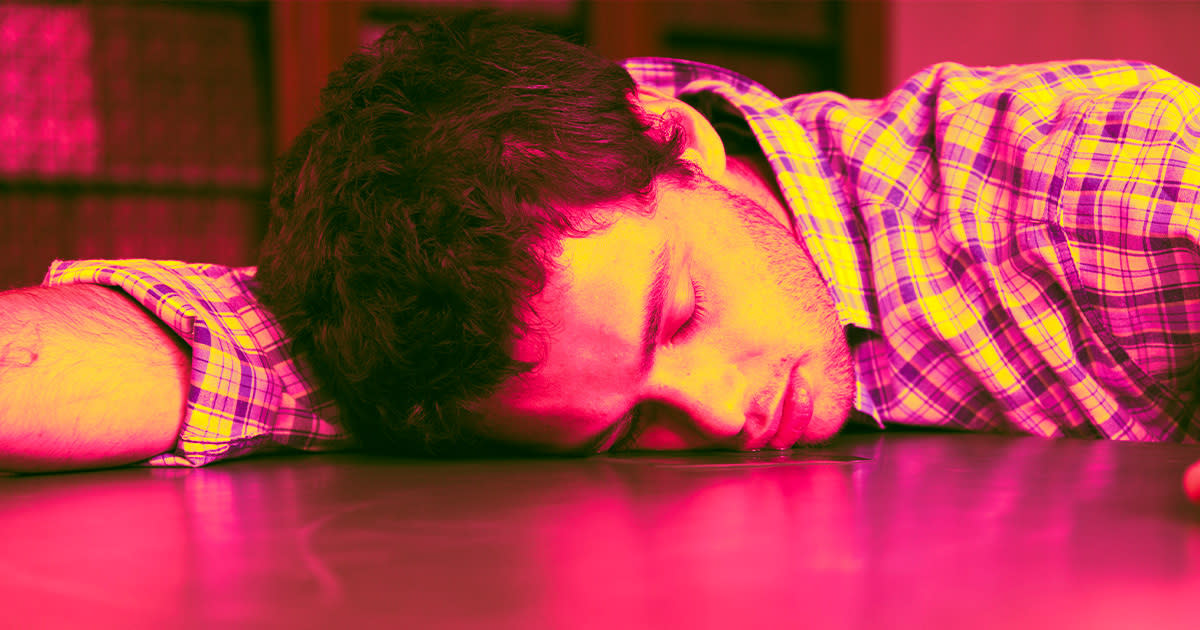Scientists Discover That When You Don't Sleep, You Turn Into a Bigtime Dumbass

Do you struggle to get a good night's sleep? It may be making you slow and dumb, according to new research.
That's what a quintet of researchers in Mexico concluded in a new paper published in the journal Experimental Brain Research and highlighted by PsyPost.
The scientists examined how sleep deprivation reduces people's attention spans and their capacity to respond quickly by measuring the ability of 22 undergraduate students to detect visual targets during a five day period of escalating sleep deprivation.
For the first two days, students slept normally. But then the researchers forced the students to go without sleep for 24 hours, and then had them recover from that bout of sleeplessness for two days.
Periodically, the scientists administered a test called the Rapid Serial Visual Presentation (RSVP), which entailed flashing the students with two number targets that appeared in quick succession on a computer screen. Mixed in with these numbers were letters meant to distract the viewer.
The RSVP test is meant to measure students' ability to look for that quickly appearing second target, which most people can't pick up because humans have trouble detecting objects or events that appear rapidly one after another — a cognitive condition called the attentional blink, which is a "phenomenon that reflects difficulty in detecting or identifying the second of two successive targets... that are presented in rapid succession, between 200-500ms apart," the researchers wrote.
During the study period, researchers measured the students' capability of performing the RSVP task in relation to the attentional blink phenomenon. Basically, the scientists measured how they responded to visual targets and how long it took to detect them.
After experiencing no sleep for 24 hours, students' ability to detect the number targets decreased substantially in accuracy, while it also took a longer time for them to detect the targets. Typically, people experience attentional blink at around 200 to 500 ms, and yet sleepy college students had trouble detecting the target even when given a longer amount of time such as 600 ms.
Basically, lack of sleep sapped the student's accuracy and attention while making them slow to react. Recovering from their sleepless 24 hours, fortunately, also restored their attention spans and reaction time.
"The main takeaway is that skipping a night of sleep can increase the risk of making errors," study first author and Autonomous University of Nuevo León psychology professor Carlos Gallegos told PsyPost. "While some errors are harmless (such as misreading a word while studying), others can be fatal (like pressing the accelerator instead of the brake while driving). It’s important to emphasize that when we push capacities like attention and memory to their limits (as it occurs in the attentional blink), there’s always a chance of error, even during the day or without sleep deprivation."
That's something to consider next time you consider forgoing sleep but have a task the next day that has little room for error — like operating a long haul truck, for instance.
Simply put, sleep is good for you. Get some!
More on sleep: If There's Any Light in Your Room When You Sleep, This Research Might Worry You

